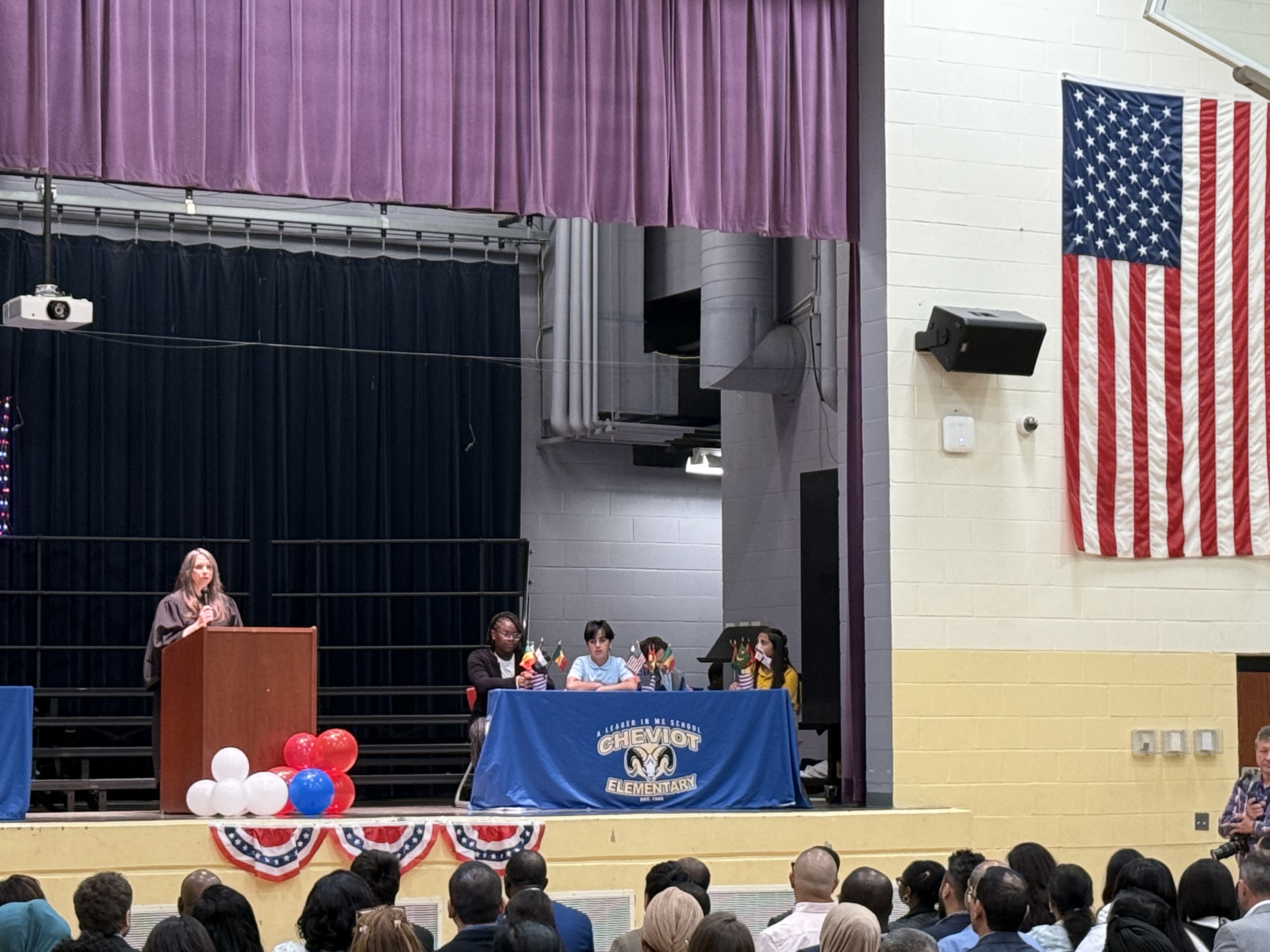The United States District Court for the Southern District of Ohio presided over two naturalization ceremonies at baseball stadiums this summer.
Thousands of fans cheered after 60 new citizens took the Oath of Allegiance on July 30 at Great American Ball Park before the Cincinnati Reds took on the Los Angeles Dodgers. The fans then joined the new citizens and United States Magistrate Judge Stephanie K. Bowman in reciting the Pledge of Allegiance.
Before the new citizens lined up on the left field warning track to take the oath, Judge Bowman spoke to them in the stadium's fan zone about the responsibilities of being an American.
The ceremony was the last step of a journey that takes years to complete to become an American citizen. The candidates were lawful residents of the United States who passed required background checks, proven their good moral character, and passed English reading, writing, and speaking tests. They also passed a U.S. history and civics exam.
In Dayton, 20 new citizens from 19 countries took the Oath of Allegiance between innings at a Dayton Dragons game Aug. 5. United States District Judge Michael J. Newman and United States Magistrate Judge Caroline H. Gentry presided over the ceremony.
Vietnam native Tung Xuan Nghiem was one of the people who became a new citizen. He attended Cedarville University and met his wife, Martha, who was studying at Wright State, at an International Student Ministry event, according to the Dayton Daily News.
He said he was proud to become an American.
“The USA is made of immigrants,” Nghiem said. “We just add diversity and bring a unique culture to the USA. I think we bring a lot of talent and love. It’s a core of the U.S.”
This article was provided by courtesy of the Southern District of Ohio United States District Court.
https://www.ohsd.uscourts.gov/naturalization-ceremony-day-air-ballpark-august-5-2025

